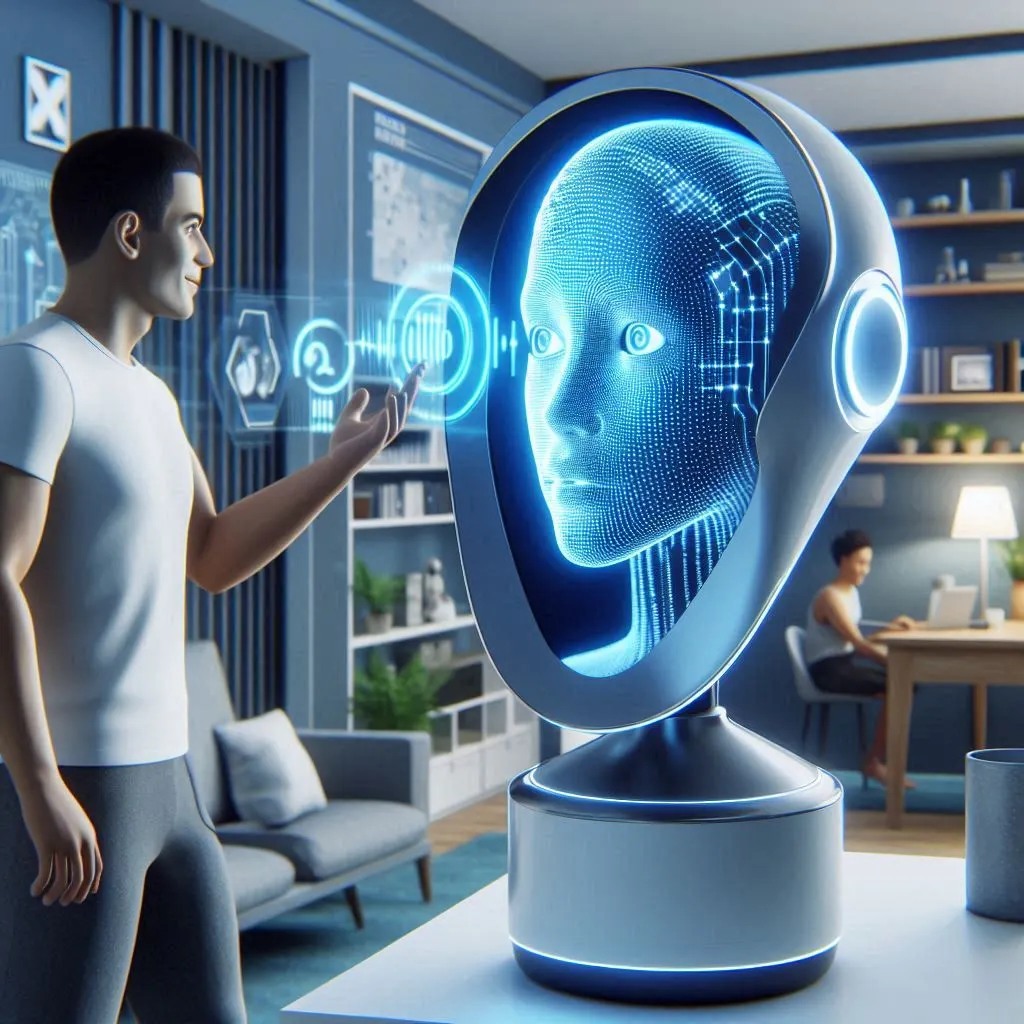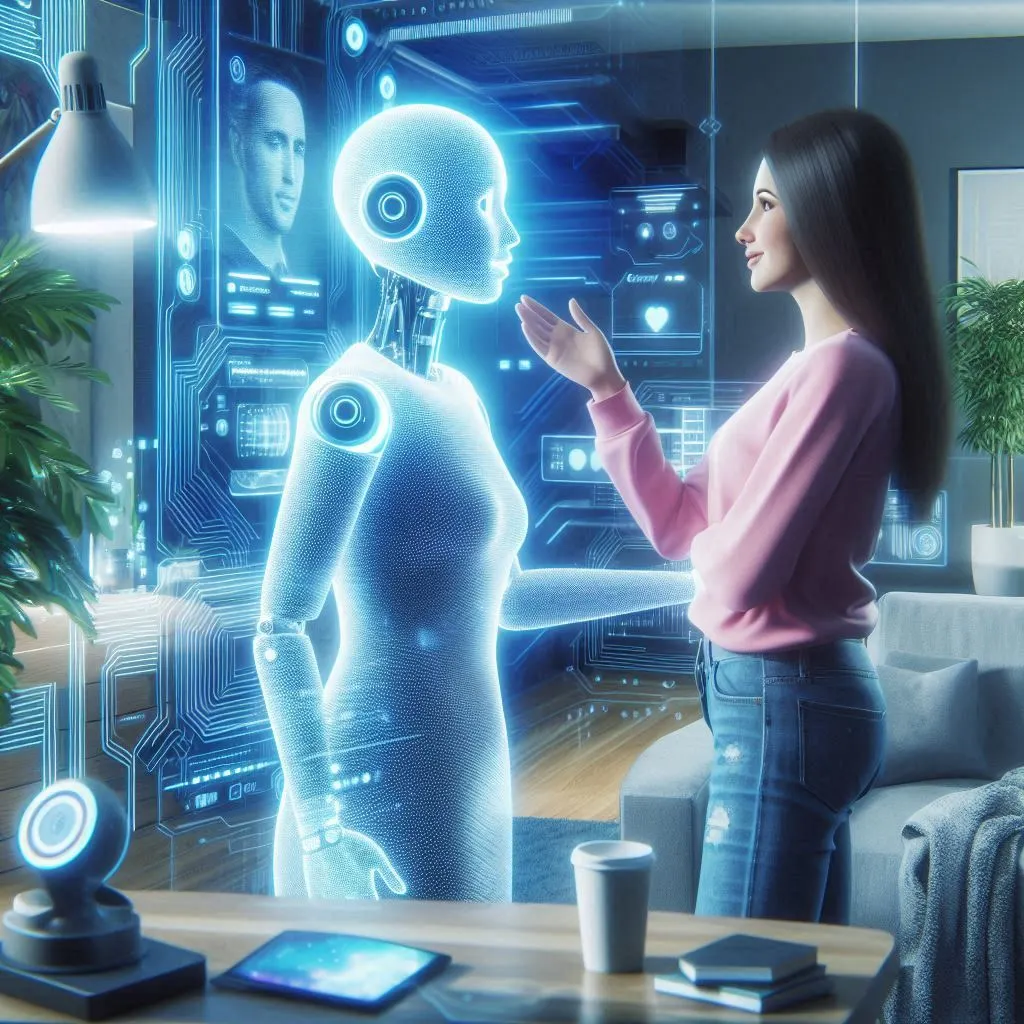The Rise of AI Voice Cloning Tech
Microsoft has made significant strides in Artificial Intelligence (AI), specifically in the realm of voice cloning technology. This groundbreaking development has reached a point where AI-generated voices are almost indistinguishable from human speech, achieving what many call “human parity”. While this leap forward opens exciting possibilities, it also raises critical usage concerns and ethical questions. Named VALL-E 2, this AI system for speech synthesis is touted as being capable of generating “human-level performance” voices with just a few seconds of audio that were indistinguishable from the source.
What is AI Voice Cloning?
Voice cloning is a technology that uses AI to replicate human voices with stunning accuracy. This means that an AI system can listen to a person speak and then generate audio in that person’s voice.
How It Works

Here’s a simplified breakdown of the process:
- Data Collection: AI needs samples of the target voice to learn its unique characteristics.
- Training: The collected data is used to train neural networks, teaching them to mimic the nuances in tone, pitch, and speech patterns.
- Generation: Once trained, the AI can create a new speech that sounds like the target voice.
Potential Applications
Microsoft’s AI voice cloning technology has numerous potential applications, including:
- Customer Service: Personalized and realistic interaction with customers.
- Entertainment: Voiceovers in movies or video games with uncanny realism.
- Accessibility: Assisting individuals who have lost their ability to speak.
Concerns and Ethical Considerations
While the technology is remarkable, it also raises several concerns:
Consent and Privacy
One of the biggest issues is consent. Whose voice is it, and does the person have control over how their voice is used? Privacy breaches are serious concerns, especially if someone’s voice can be cloned and used without their permission.
Misuse Potential
The potential for misuse is high. Imagine scenarios where cloned voices are used in fraudulent activities to deceive people, making scams more convincing and difficult to detect.
Ethical Implications
The ethical implications are vast. There’s a thin line between innovation and infringement, and walking this line responsibly is critical. Companies must establish clear guidelines and ensure the technology is used responsibly.
Current State and Future Prospects
As of now, Microsoft continues to refine this technology, making it more efficient and accessible. The future could see even more immersive and interactive AI, but with it comes the responsibility to address ethical and security concerns.
| Benefits | Risks |
|---|---|
| Personalized Customer Service | Privacy Invasion |
| Enhanced Entertainment | Fraudulent Activities |
| Accessibility Improvement | Ethical Concerns |
Conclusion
Microsoft’s breakthrough in AI voice cloning technology represents a significant leap forward, blending human and digital communication like never before. While the potential benefits are vast, they come with considerable risks that cannot be overlooked. It’s crucial to navigate these waters with careful consideration of ethical, privacy, and security implications. All in all, AI technology is a game changer.
Frequently Asked Questions
What is human parity in AI?
Human parity in AI refers to an AI system’s ability to perform tasks at the same level of proficiency as a human counterpart. In the context of voice cloning, it means the AI-generated voice is indistinguishable from a human voice.
Can AI voice cloning be used for malicious purposes?
Yes, there’s a significant risk that AI voice cloning could be used for fraudulent activities, such as impersonation in scams. This makes establishing strict guidelines and ethical standards essential for its usage.
How can AI voice cloning benefit the disabled?
AI voice cloning can help individuals who have lost their ability to speak by allowing them to use their natural voice in digital and assistive devices, thereby improving their quality of life.
What steps can be taken to protect privacy?
Ensuring consent and establishing stringent laws and guidelines can help protect privacy. Individuals should have control over how their voices are used and be informed of any AI applications involving their voices.
Key Takeaways
- Microsoft’s AI voice cloning is revolutionizing digital communication by achieving human parity.
- This technology has diverse applications but also significant ethical and security concerns.
- Consent, privacy, and proper regulations are crucial to ensure responsible usage.





